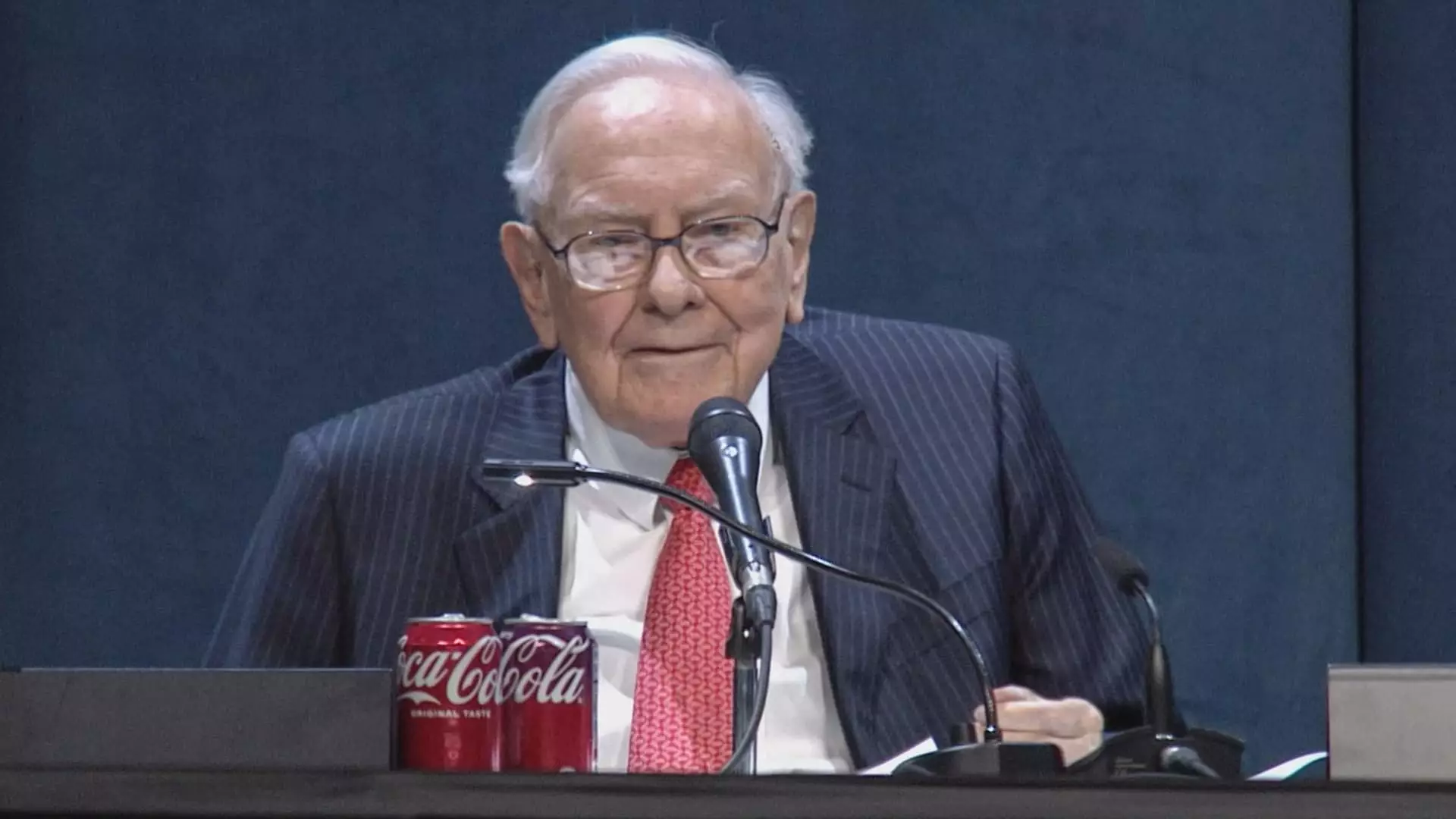Berkshire Hathaway’s latest earnings report reveals a company in troubled waters, caught between its robust financial reserves and the harsh reality of a fragile global trade environment. While Warren Buffett’s empire still commands respect with a colossal cash pile approaching $344 billion, the underlying fundamentals paint a more concerning picture. The modest 4% decline in operating earnings—down to $11.16 billion—may seem minor at first glance, but it underscores underlying vulnerabilities that could destabilize the conglomerate’s future. This isn’t merely about a dip in numbers; it’s a symptom of a broader economic malaise, driven predominantly by the unpredictable shocks of U.S. tariffs and international trade tensions.
What strikes during this analysis is not just the decline, but the mixed bag of performance across different sectors. Railroads, energy, manufacturing, and retail areas are showing resilience with increased profits, yet the insurance wing—an essential pillar of Berkshire’s stability—suffered a downturn in underwriting. This inconsistency exposes a company seemingly at the mercy of external factors it cannot fully control. The message from Buffett is clear: Berkshire’s vast financial coffers do not guarantee immunity from the geopolitical turmoil that increasingly defines the global economy.
Risks Hidden Behind the Illusion of Fortified Reserves
Despite the reassurance of a near-record cash reserve, the real peril for Berkshire lies in its mounting exposure to market volatility. The company’s decision to sell $4.5 billion worth of stocks in the first half of 2025 illustrates a cautious, if not alarmed, stance—dampening its usual aggressive investment posture. The fact that Berkshire abstained from share repurchases in a period where stock prices dipped more than 10% indicates a cautious, perhaps even timid, approach to capital deployment. This pause may reflect uncertainty about the immediate future, a symptom of a broader malaise that could persist long-term.
Adding further weight to this concern is Berkshire’s $3.8 billion loss from Kraft Heinz. This loss is not just a blip; it signals deeper structural issues within a once-promising brand that now risks being left behind in an evolving consumer landscape. The potential spinoff of Kraft Heinz’s grocery business hints at desperation, an acknowledgment that Berkshire’s investment choices might have lost their luster or become liabilities rather than assets.
The Cost of Global Tensions and Leadership Uncertainty
Berkshire’s warning about the “accelerated” pace of international trade tensions and tariffs underscores a harsh reality: the global economy is increasingly unpredictable, and major players like Berkshire are not immune to its shocks. The conglomerate’s frank admission of “considerable uncertainty” in future outcomes is a stark contrast to its previous reputation for bullish confidence. It reveals a critical recognition that external geopolitical events are inflicting tangible damage on Berkshire’s diverse holdings.
Leadership transitions add another layer of concern. With Greg Abel poised to succeed Buffett as CEO—an act that signals only continuity—it’s hard to dismiss that the company’s internal stability might soon be tested. Buffett’s decision to stay on as chairman suggests an attempt to retain stability, yet it also raises questions about the long-term strategic direction during what might be a turbulent period.
In the end, Berkshire Hathaway appears to be a paradox: a financial powerhouse burdened with the vulnerabilities of a globalized, politically fraught economy. Its resilience is notable, but the cracks are evident. Will Buffett’s legendary patience and cash reserves be enough to weather this storm, or will the external pressures finally breach its defenses? Only time will tell, but one thing is certain: Berkshire’s future hangs in the balance of a chaotic and unpredictable geopolitical landscape.

